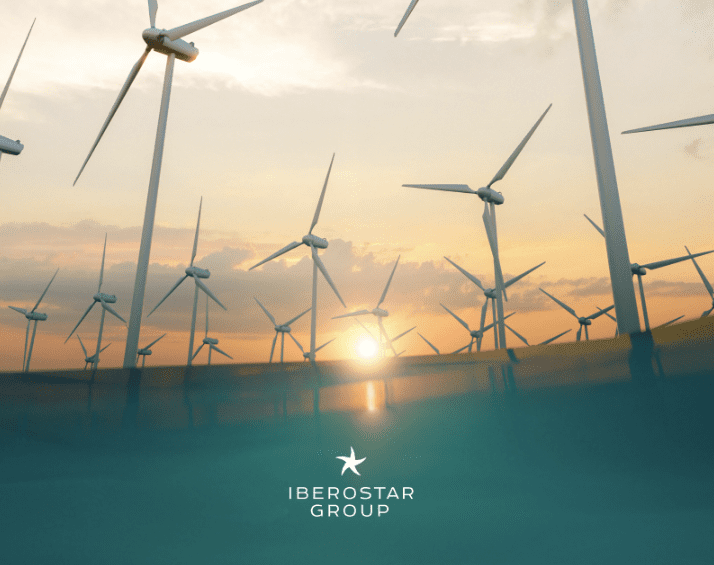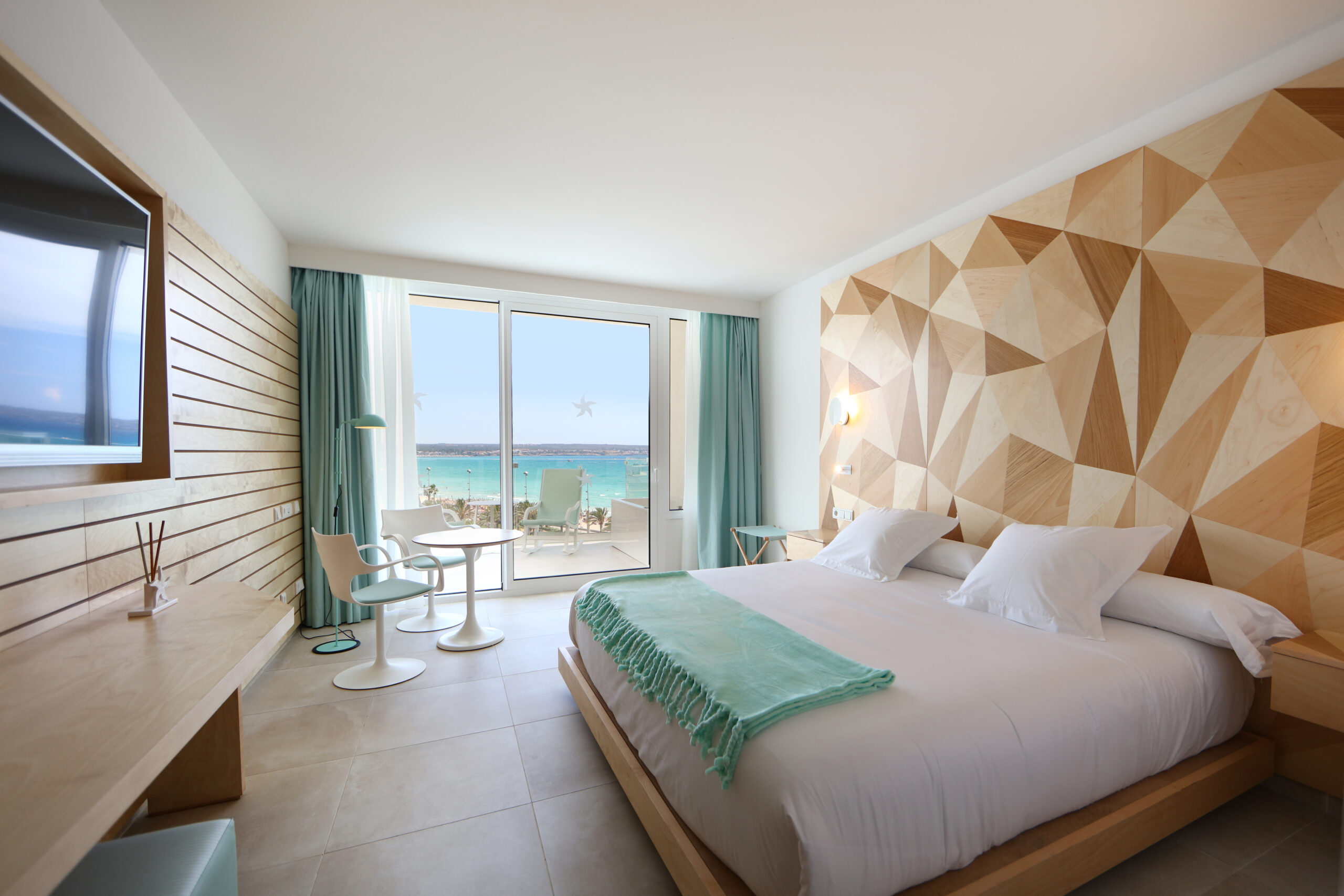Here you will find a couple of highlights of our comprehensive work, learn more about our work in 2020 in our year in review.
Three years ago, we set a goal to become single-use plastics free, first in our rooms in Spain and then quickly to all of our operations around the world. We’re proud to announce that even in spite of the challenges presented by the global pandemic in 2020, Iberostar achieved its goal of becoming single-use plastic free in its operations in 2020. To explain how we got there, let’s take a look at how Iberostar defined a single-use plastic and how that has evolved to our commitment to a circular economy.
When we embarked to remove single-use-plastics from our rooms, we quickly realized all the waste we were sending to landfill was a much bigger problem than just the plastic. With a new focus on waste, we began to embrace a circular economy by committing to remove all residuals sent to landfill in our operations by 2025.
A single-use plastic can be defined in many ways. In more rigorous definitions, a five gallon bottle of olive oil can be considered single-use if it is not refilled. Yet the plastic can be of recycled material and recycled after its use. Even worse, the production of that item in glass or metal alternatives often takes many-fold more energy and more water to produce, raising the question of the costs and benefits of alternatives. Thus, we opted for a more operational and holistic approach to eliminating single-use plastics and move towards a circular economy.
We defined single-use as ‘a product made totally or partially with plastic and that has been conceived, designed or introduced on the market to be used once or for a short period of time before disposal.’ In doing so, we moved from single-dose amenities to high-quality cosmetics in multiple doses. We replaced the plastic bags around our slippers, the plastic bags lining our trash cans with paper or compostable alternatives. We removed single-serve plastic yogurt containers in our buffets and moved to glass or bulk options. We removed single-use water bottles by investing in high quality reverse osmosis fountains and hundreds of re-fill points for our clients to enjoy. We even took care of single-dose jams and butter, finding paper or glass or bulk alternatives. When hygiene standards in response to the pandemic arose, we found reusable face masks made out of recycled materials, we purchased hand sanitizer in bulk and refilled touch points throughout the hotels and we worked tirelessly with our housekeeping staff to ensure rigorous cleaning of the multi-use or non-plastic amenities and minibar items we had already placed in our rooms.
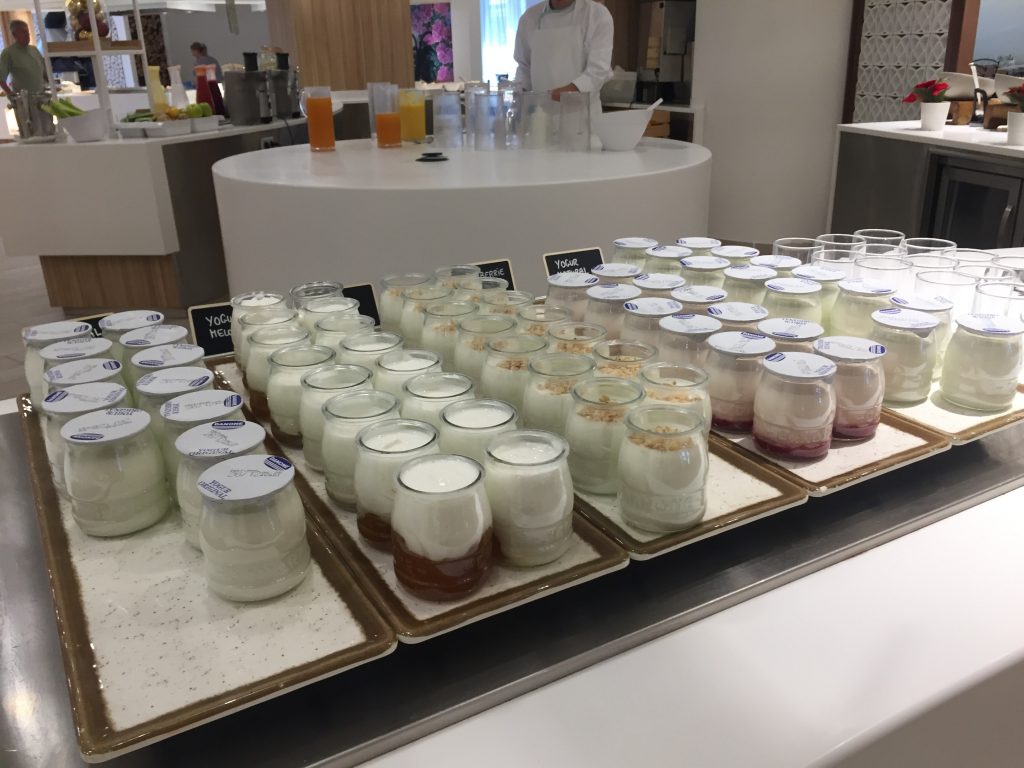
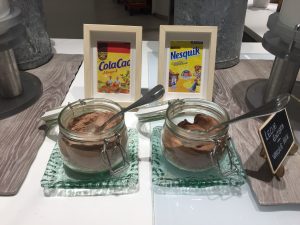
Unfortunately, our journey still left products made of problematic plastics. In our kitchens, we still struggle with solutions for the plastic cling film which ensures we meet our food safety standards. We still struggle with packaging for food which ultimately feeds in portions much larger than single-serve, but still ends up in landfill. That’s why we’re focusing on the weedy details, creating an entire department within our operations focused on the segregation and measurement of waste we send to landfill, and are focusing on the biggest challenge of all – ensuring that all products retain value at the end of their use at Iberostar. In doing so, we imagine a world where waste does not exist, where we focus on reusing, restoring and regenerating, just like nature does.
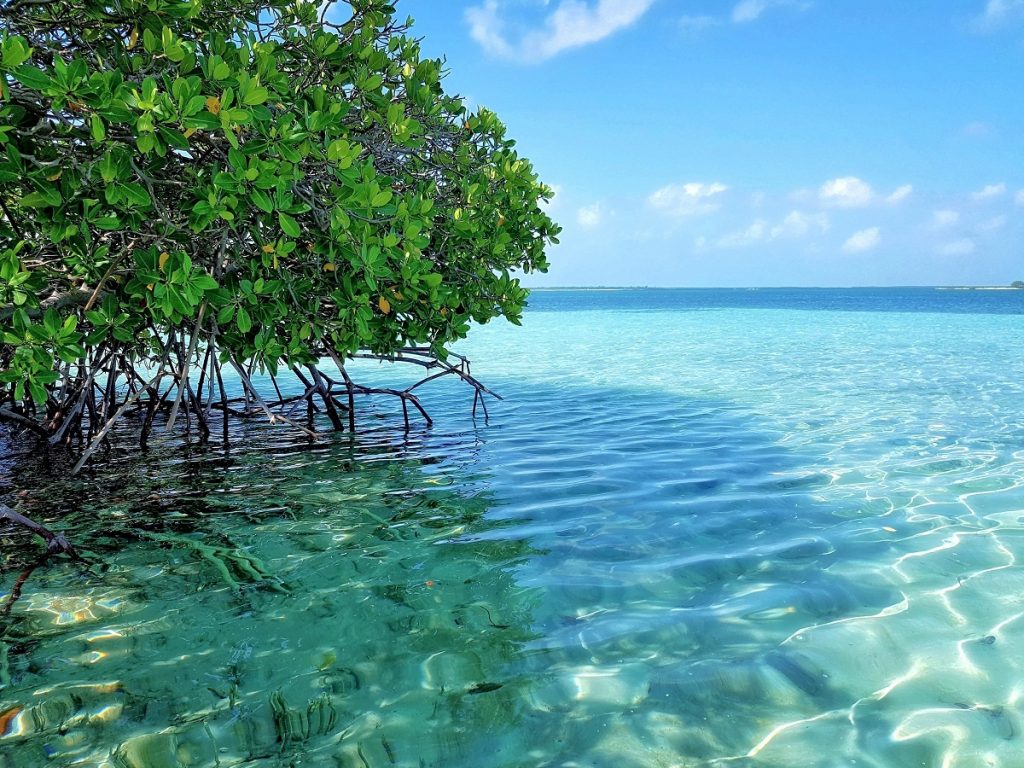
Nature-based blue carbon offsets
Climate change is one of the biggest crises we face globally. Caused in large part by greenhouse gas (GHG) emissions and concentrations of carbon dioxide, the climate emergency has a profound impact on our planet and all of us who live on it. The effects of climate change and human activities that generate pollution, overfishing and the degradation of habitats have simultaneously affected nature and people. These consequences include the worsening of natural phenomena such as hurricanes and storms, fires, droughts and rising sea levels.
Faced with this situation, it is imperative to find and invest in initiatives that mitigate climate change. Nature has a very effective mechanism for this that we often do not think about: marine and coastal ecosystems. These ecosystems, like mangrove forests, can capture and store significant amounts of carbon, known as “blue carbon”. In fact, they can do so with an efficiency up to 10 times greater than that of terrestrial forests, thanks to the ability to store carbon in soils and delay the decomposition of organic matter, which leads to the accumulation of large amounts of carbon that mitigate greenhouse gas emissions.
For this reason, the protection and restoration of mangroves has been identified as a key nature-based solution to face climate change. Mangroves cover approximately 75% of the coastline along the tropical and subtropical coasts, making them one of the largest carbon pools for this region.
Beyond storing large amounts of carbon, these marine and coastal ecosystems are vital to communities in coastal areas as well as communities further from the coast. Mangroves help to generate food resources and medicinal products, improve water quality and protect coasts from damage caused by natural phenomena such as storms, hurricanes and erosion. These ecosystems also provide income for millions of people who live along the coastline through fishing and tourism, due to their cultural value and great natural beauty.
A sustainable ocean economy must implement integrated solutions that are based on solid scientific evidence, broad-reaching private-public partnerships, and the close participation of local communities, academia and government entities. To achieve this sustainable ocean economy within Iberostar, we present these four objectives for our program on Nature-based Blue Carbon Offsets:
1. Combined with other restoration and protection programs in Coastal Health, offset at least 75% of GHG emitted by Iberostar’s operations by 2030.
2. Use Nature-based blue carbon as an additional source to filter excess nutrients after treatment in selected properties where Iberostar has its own facilities for the treatment of wastewater.
3. Curate the destination by adding at least 25% more green space (vegetation) in areas adjacent to select Iberostar hotels, with the intent of protecting natural spaces in destinations.
4. Generate the highest volume outreach activity for clients to experience Coastal Health of Wave of Change.
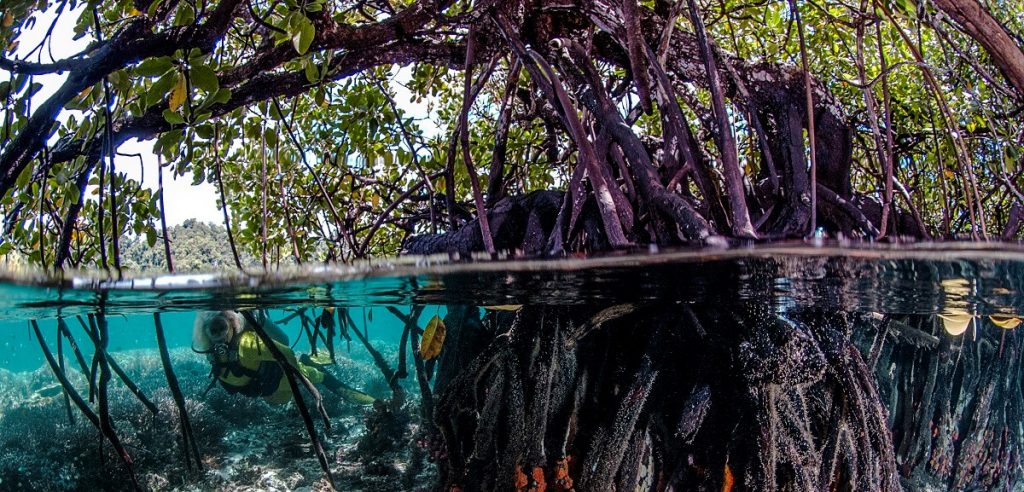
Betting on the protection and management of these ecosystems is a firm step that we must take to curb climate change and the devastating effects it has worldwide. This is a step that will also take care of the health of the coasts, will help all of us who depend on them and will allow us to continue enjoying their natural beauty through tourism.
These are some highlights of our move towards a circular economy in 2020, see our entire report in our year in review.


